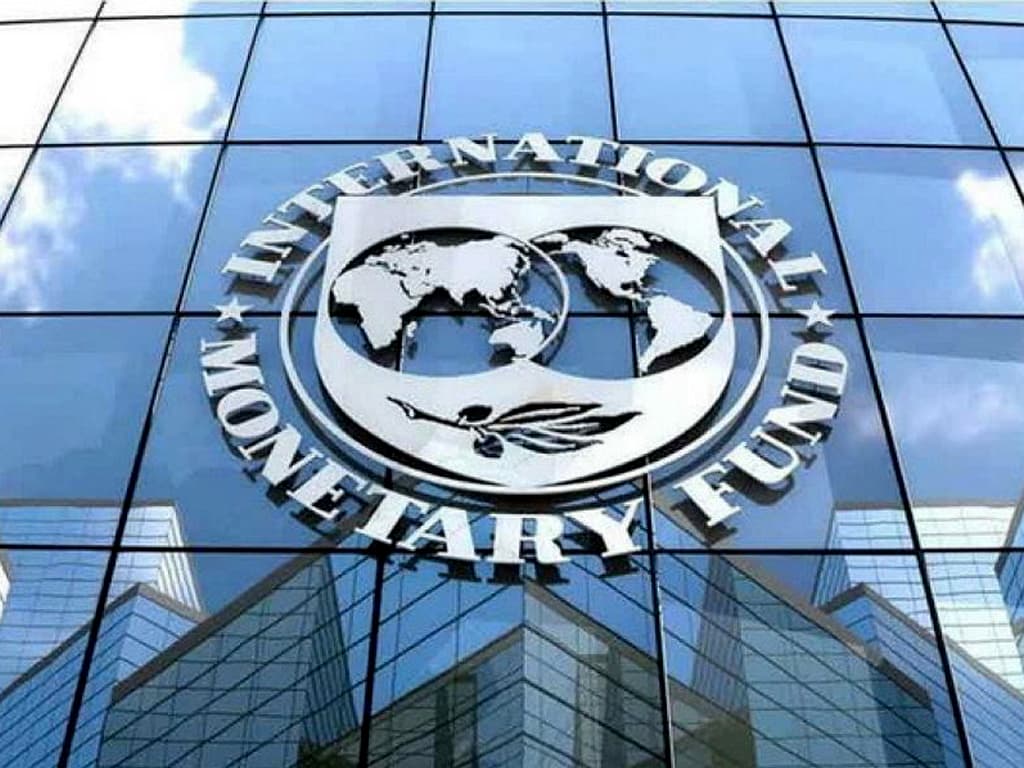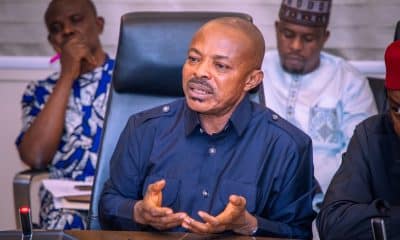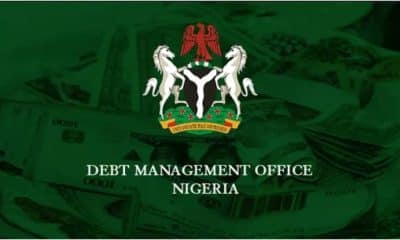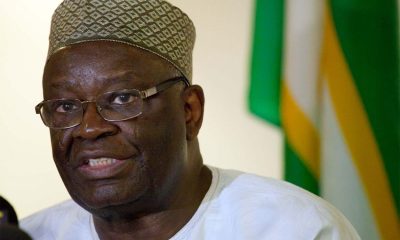Nigeria News
Poverty, Food Crisis In Nigeria Is High – IMF Says, Amid $2.8 Billion Debt

According to the International Monetary Fund (IMF), the poverty rate and food insecurity in Nigeria are currently high.
Naija News reports that the IMF made these remarks in its recent report, noting that Nigeria is currently grappling with a deepening economic crisis.
In their latest report titled “IMF Executive Board Concludes Post Financing Assessment with Nigeria,” the international organization pointed out that the ongoing cost-of-living crisis in the country has been worsened by stagnant per-capita growth, widespread poverty, and alarming levels of food insecurity.
This report comes when Nigeria is also facing challenges such as surging inflation, an exchange crisis, sluggish economic growth, and the closure of businesses.
The IMF further emphasized that the inadequate revenue collection has hindered the government’s ability to provide essential services and invest in public projects.
Additionally, the report highlighted that headline inflation in Nigeria reached a staggering 27 per cent year-on-year in October, with food inflation soaring to 32 per cent.
These figures reflect the adverse impact of fuel subsidy removal, depreciation of the exchange rate, and a decline in agricultural production within the country.
The report reads: “Nigeria faces a difficult external environment and wide-ranging domestic challenges. External financing (market and official) is scarce, and global food prices have surged, reflecting the repercussions of conflict and geo-economic fragmentation.
“Per-capita growth in Nigeria has stalled; poverty and food insecurity are high, exacerbating the cost-of-living crisis. Low reserves and very limited fiscal space constrain the authorities’ option space.
“Against this backdrop, the authorities’ focus on restoring macroeconomic stability and creating conditions for sustained, high, and inclusive growth is appropriate.”
The report noted that on January 12, 2024, the IMF’s Executive Board concluded the Post Financing Assessment and endorsed the Staff Appraisal based on the passage of time.
The report further highlighted that Nigeria possesses sufficient capacity to repay the IMF.
The IMF expressed confidence in the new administration’s commendable efforts to address long-standing structural problems despite difficult conditions.
Notably, the administration swiftly implemented two policy reforms that previous administrations had avoided: the elimination of fuel subsidies and the consolidation of official exchange rates.
It added, “The new CBN team has made price stability its core mandate and demonstrated this resolve by dropping its previous role in development finance. On the fiscal side, the authorities are developing an ambitious domestic revenue mobilisation agenda.”
Nigeria’s Debt To IMF
Based on information provided by the Debt Management Office (DMO), Nigeria’s outstanding debt to the IMF currently stands at $2.8 billion, Naija News reports.
The Federal Government has allocated approximately N8.2 trillion in its 2024 budget for debt servicing.
In a recent report, PricewaterhouseCoopers, a reputable professional services firm, has cautioned that the escalating costs of servicing Nigeria’s debt could have adverse effects on the country’s ability to service its debt, credit rating outlook, and borrowing expenses.
PwC has projected that debt servicing expenses may increase from N8.25tn in 2024 to N9.3tn in 2025, and further rise to N11.1tn in 2026.
“With a high debt servicing to revenue ratio, the government aims to increase domestic debt in 2024 to meet its deficit funding requirements,” the report read.












